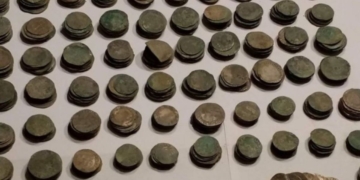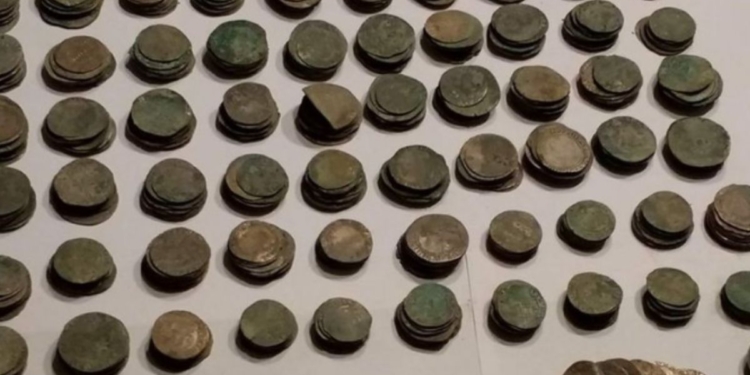It is the 1640s in Dorset, along England’s southern coast.
All around, in a war over religion, freedom and power, Cavaliers and Roundheads are clashing in deadly battles that will not cease for almost a decade.
The owner of one small cottage, fearful that such wealth as he owned may be taken by one army or the other, buried a small bowl filled with gold and silver coins in the cellar of his small home.
He never returned to dig them up.
The remnant of England’s Civil War era resurfaced in 2019, when the couple that now owns the cottage wanted to undertake some renovations, according to The Guardian.
“It is a 400-year-old house, so there was lots of work to do. We were taking all the floors and ceilings out and took it back to its stone walls. We decided to lower the ground floor to give us more ceiling height,” owner Betty Fooks said.
“One evening, I was with the children and my husband was digging with a pick axe when he called to say they’ve found something. He put all the coins in a bucket,” she said.
“If we hadn’t lowered the floor, they would still be hidden there. I presume the person intended to retrieve them but never got the chance,” she said.
The couple reported the find to the government, and the coins went to the British Museum for cleaning, authentication and identification.
They will be sold at an upcoming auction at Duke’s auctioneers in Dorchester, Dorset, with an expected value for the lot of about £35,000 (about $43,291.46).
The find contained gold coins from the reigns of James I and Charles I and an assortment of silver coins, some going back to the reigns of Mary and Elizabeth I.
Historical coin hoard found buried under Dorset cottage https://t.co/kXvIcJjHwh
— BBC News (UK) (@BBCNews) April 19, 2024
Julian Smith of Duke’s said the British Museum believed the coins were all buried at the same time.
Betty Fooks said her husband, Robert Fooks, did not at first know what he had found, according to the BBC.
“He came across a mass of coins covered in mud and put them in a bucket. He didn’t stop and study them. He’s a worker — when he’s intent on something, he cracks on,” she said.
It was not until the next day she realized he had found something special.
“You can clearly see the date. Some of the gold coins were easy to read, really clean,” she said.
The hoard is believed to have been buried early in the English Civil War between 1642 and 1644, the Dorset Echo reported.
This article appeared originally on The Western Journal.


























 Continue with Google
Continue with Google